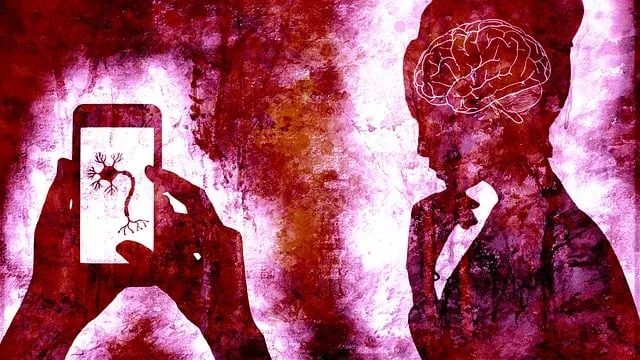The Golden Kaiser Permanente Behavioral Health Number offers critical support during mental health crises, connecting callers to trained professionals who provide immediate assistance and personalized care. Crisis Intervention Teams (CITs), comprising multidisciplinary experts, employ evidence-based interventions, trauma-informed care, and stigma reduction strategies to mitigate emotional distress and suicidal ideation. Through scenario-based training, these teams foster collaborative problem-solving and create safe, non-judgmental environments, promoting early intervention and long-term recovery for behavioral health beneficiaries.
Crisis intervention teams (CITs) play a pivotal role in behavioral health, providing immediate support during crises. This article explores CIT training programs, focusing on their essential components and the unique value of the Golden Kaiser Permanente Behavioral Health number as a vital resource for emergency support. Understanding these teams and their function is crucial, given their impact on de-escalating high-risk situations and promoting positive outcomes. Effective training equips professionals to handle crises compassionately and competently.
- Understanding Crisis Intervention Teams: Their Role and Importance in Behavioral Health
- Golden Kaiser Permanente Behavioral Health Number: A Key Resource for Emergency Support
- Essential Components of Effective Crisis Intervention Team Training Programs
Understanding Crisis Intervention Teams: Their Role and Importance in Behavioral Health

Crisis Intervention Teams (CITs) play a pivotal role in behavioral health care, serving as a crucial support system for individuals facing mental illness crises. These teams typically consist of trained professionals from various disciplines, including healthcare providers, psychologists, and social workers. Their primary objective is to provide immediate and effective assistance to those experiencing severe emotional distress or suicidal ideation. By quickly responding to such situations, CITs can significantly impact positive outcomes and reduce the severity of mental health episodes.
The importance of CITs extends beyond acute interventions; they are instrumental in fostering mental illness stigma reduction efforts and implementing empathy building strategies. Through their interactions with clients, team members help dispel myths surrounding mental health, promote understanding, and encourage early intervention. Moreover, the collaborative nature of these teams facilitates the development of robust emotional healing processes, ensuring individuals receive comprehensive care tailored to their unique needs. This holistic approach not only benefits the individual in crisis but also contributes to long-term recovery and improved overall behavioral health.
Golden Kaiser Permanente Behavioral Health Number: A Key Resource for Emergency Support

In moments of crisis, quick access to expert support can make all the difference. The Golden Kaiser Permanente Behavioral Health Number stands as a vital resource for individuals seeking immediate assistance. This dedicated hotline connects callers to skilled professionals who are trained in crisis intervention and mental health support. By dialing this number, people in distress can receive compassionate guidance, ensuring they get the help they need without delay.
The program prioritizes cultural competency training for healthcare providers, empowering them to offer tailored care. Through regular exercises in compassion cultivation practices, staff learn effective communication skills, fostering a safe and non-judgmental environment. This approach not only enhances the quality of care but also encourages positive thinking among those facing challenging situations.
Essential Components of Effective Crisis Intervention Team Training Programs

Effective crisis intervention team (CIT) training programs are meticulously crafted to equip healthcare professionals with the skills and knowledge needed to address critical situations. These programs prioritize a multi-faceted approach, incorporating essential components like scenario-based role-playing, evidence-based interventions, and trauma-informed care principles. By immersing participants in realistic scenarios, CIT training fosters emotional regulation skills, enhances communication, and promotes collaborative problem-solving.
A key element in these training programs is the integration of mental illness stigma reduction efforts. By raising awareness and challenging stereotypes, CIT members become advocates for individuals facing behavioral health challenges, such as those seeking support through the Golden Kaiser Permanente behavioral health number. Furthermore, Trauma Support Services are an integral part of comprehensive CIT training, ensuring professionals are prepared to respond sensitively to individuals with a history of trauma, thereby creating a safer and more supportive environment for recovery.
Crisis intervention team (CIT) training programs play a vital role in equipping healthcare professionals with the skills to manage crisis situations effectively. By understanding the unique dynamics of behavioral health emergencies and implementing evidence-based strategies, these programs ensure that individuals in distress receive timely and appropriate support. The Golden Kaiser Permanente Behavioral Health number serves as a crucial resource, providing immediate access to expert assistance during critical moments. Through comprehensive training, including role-playing scenarios and education on de-escalation techniques, CIT members become the frontline defenders against mental health crises, fostering safer communities and enhancing long-term recovery outcomes.






